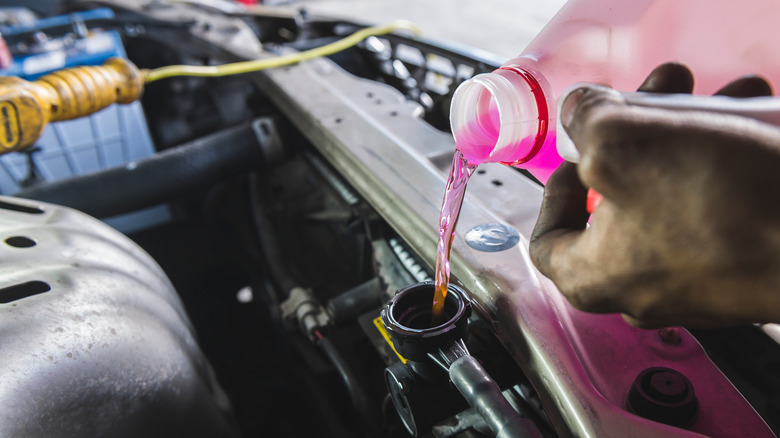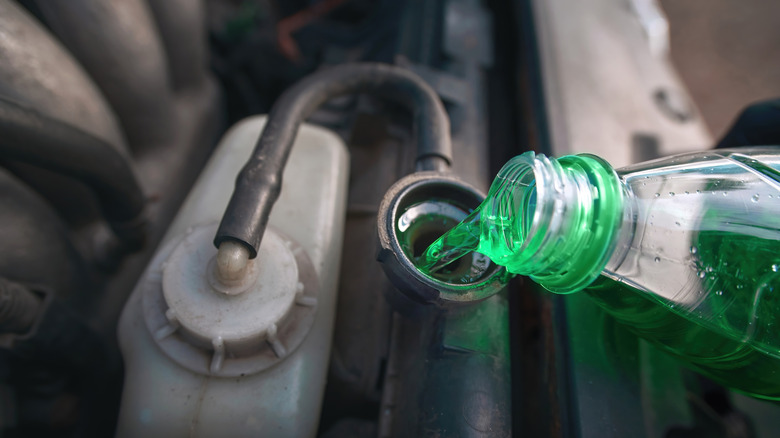Does Engine Coolant Expire? Here's What You Need To Know
Internal combustion engines require many types of fluids to operate smoothly. One of the most essential is coolant. Coolant is that green, yellow, pink, or purple fluid that goes inside the radiator and flows throughout the engine. While the terms coolant and antifreeze are often used interchangeably, there is a difference. Antifreeze is a concentrated liquid that is mixed with water to create what we call coolant. The pH of coolant changes when it's exposed to air, and increased acidity can diminish its ability to protect against corrosion.
Coolant should be refreshed regularly depending on the manufacturer's recommendation For example, Toyota suggests you change coolant with silicates every two years or 30,000 miles, while some Mercedes-Benz vehicles can go more than 100,000 miles without a coolant change. Draining and refilling your engine coolant is one of a few things you can do to extend the life of your engine. When doing this job, make sure the coolant you're using is still good. An unopened bottle of antifreeze has a shelf life of up to five years, although Prestone claims its products can stay fresh for up to 10 years if the bottle remains sealed. However, antifreeze from an open or unsealed container or mixed coolant will not remain usable for that long. Once you've opened a bottle of antifreeze and mixed it to make coolant, it's best to use it within a year.
How do you know if coolant has gone bad?
Don't worry if you've lost count of how long that coolant in your garage has been hanging around, since there are telltale signs that the coolant is past its useful life. Most antifreeze comes in bright colors, but it will sometimes turn a murky shade of brown or rust when it's gone bad. Other signs include a fetid, musty odor from the container and sludge at the bottom — both sure signs of chemical breakdown. Coolant that's already in your vehicle can be tested for acidity using pH strips, and a hydrometer will help you measure its ability to resist boilover and freezing.
Using degraded coolant in your car's radiator will only bring bad news. Expired or incorrectly mixed coolant may overheat your engine and leave you stranded, and over time can corrode the radiator, water pump, and other metal parts. This can lead to engine damage and costly repair bills. Make sure you're using fresh coolant when servicing the engine. You'll also want to check your owner's manual or call your dealership's service department to identify the right formula for your car.

